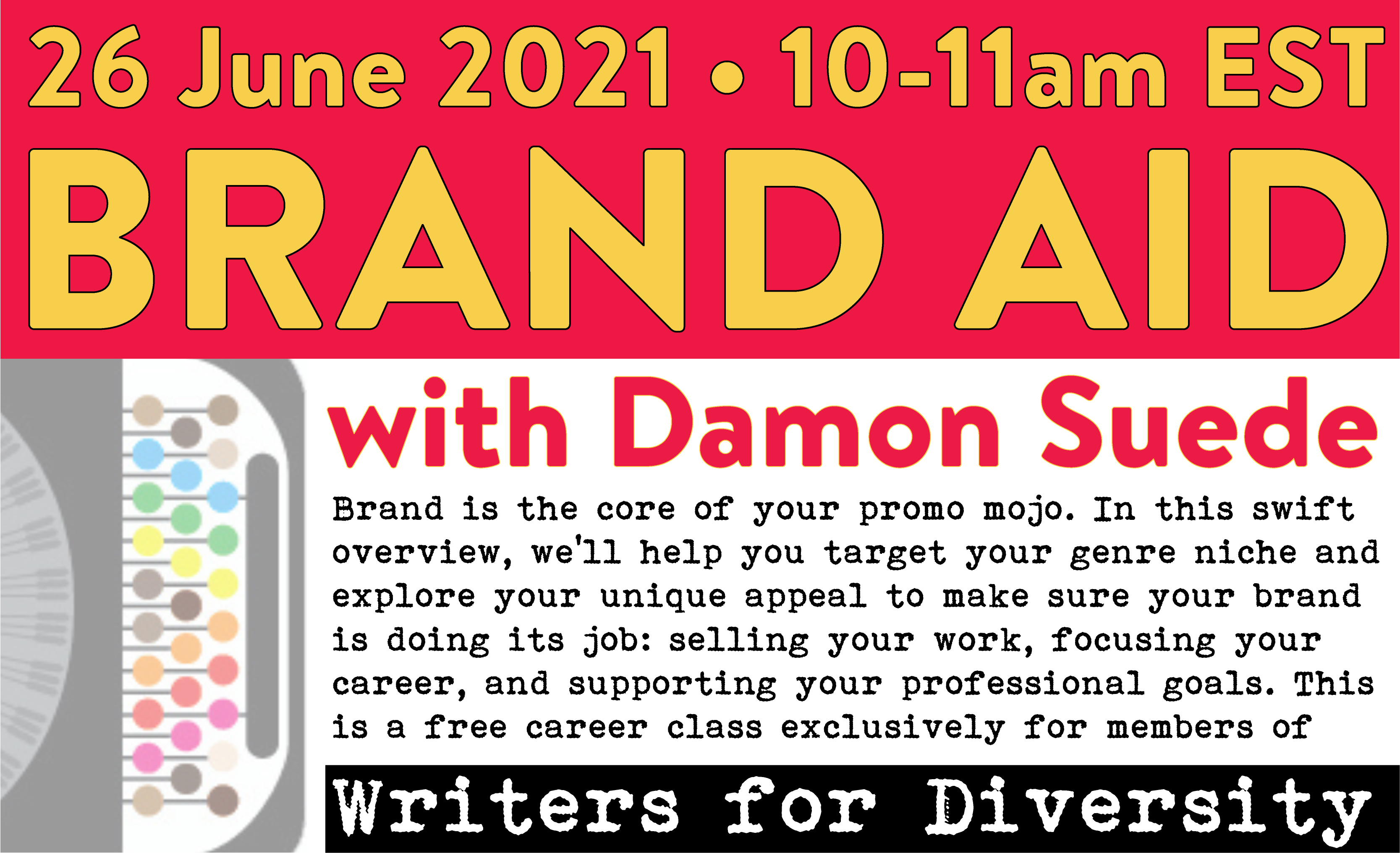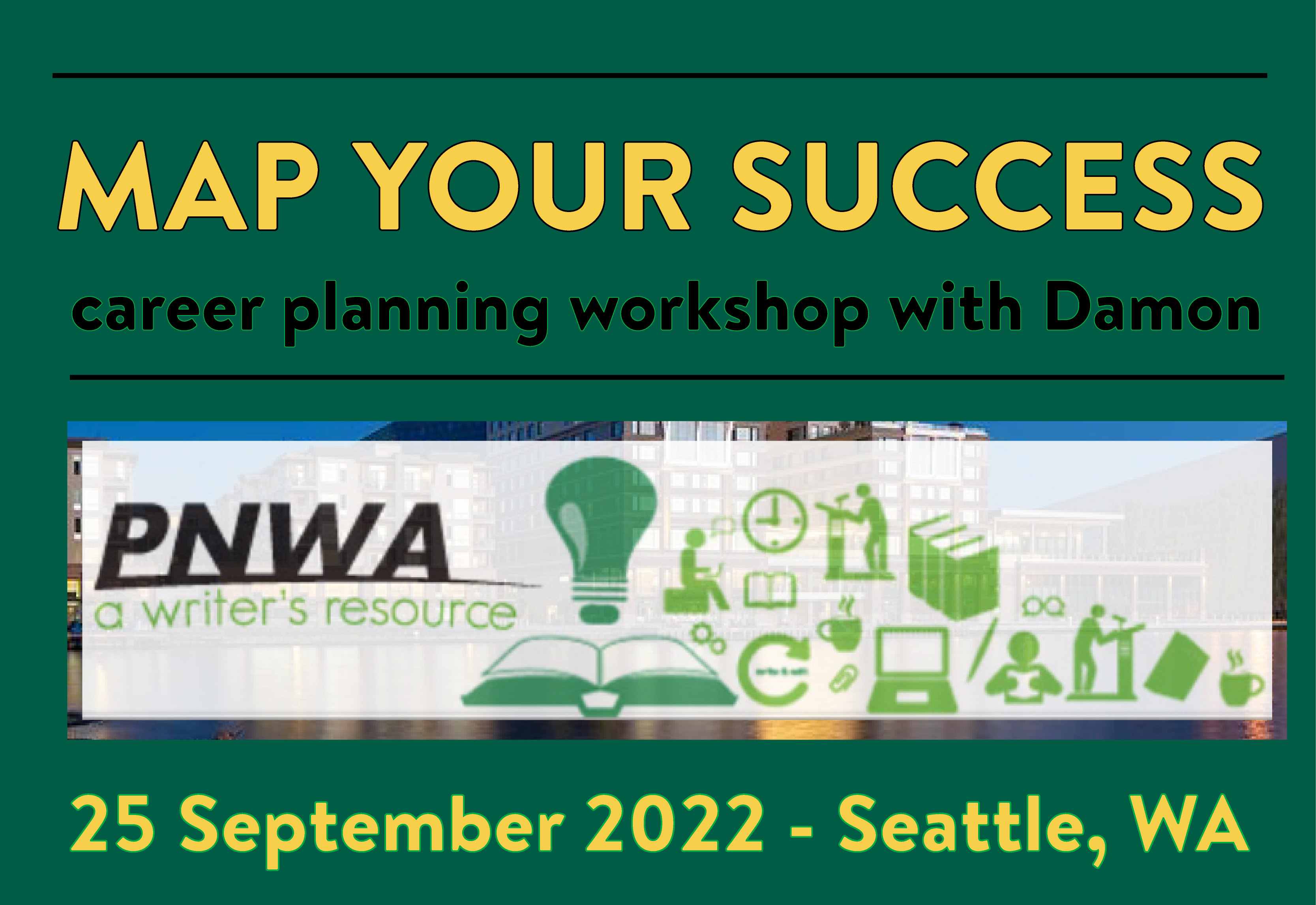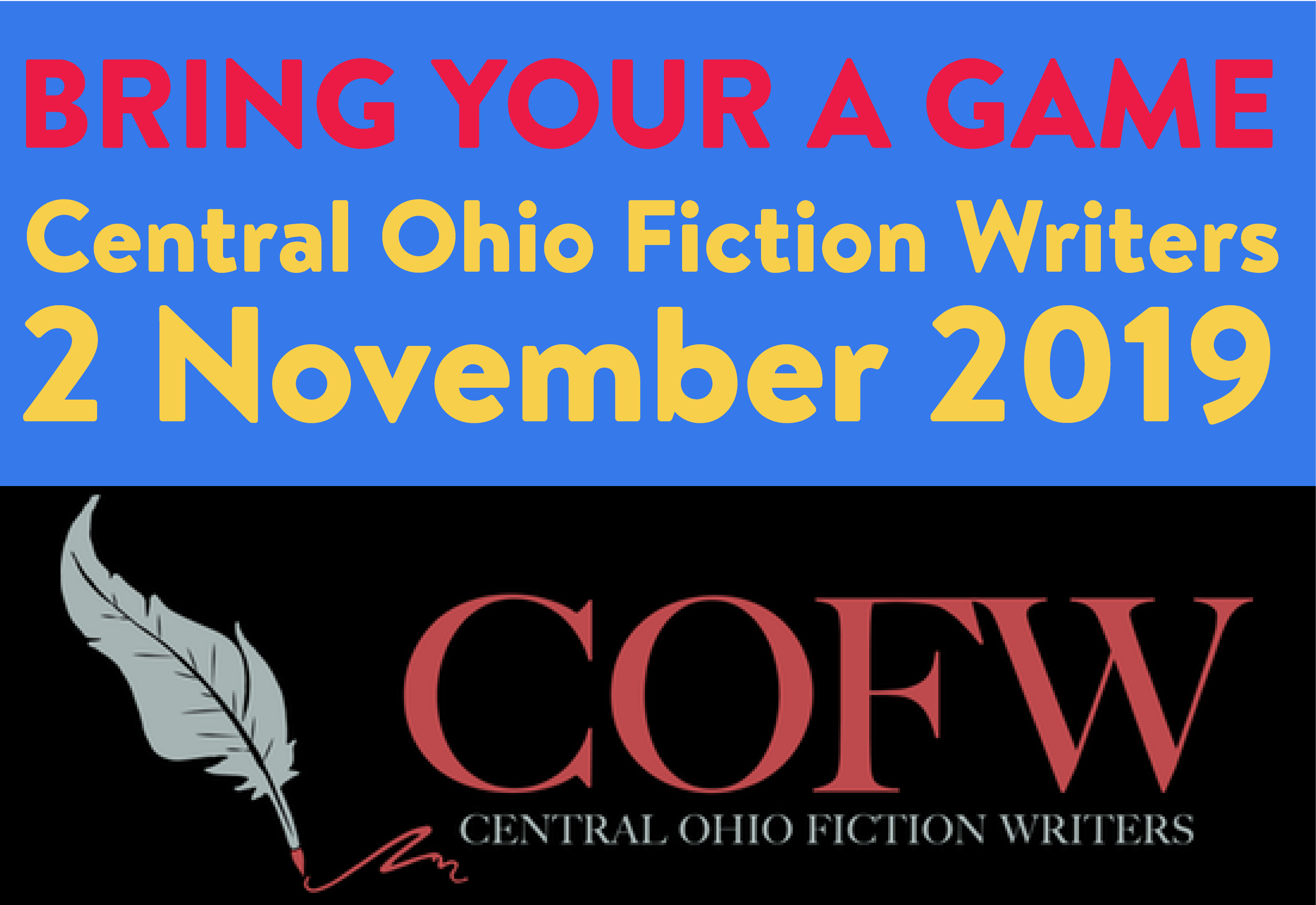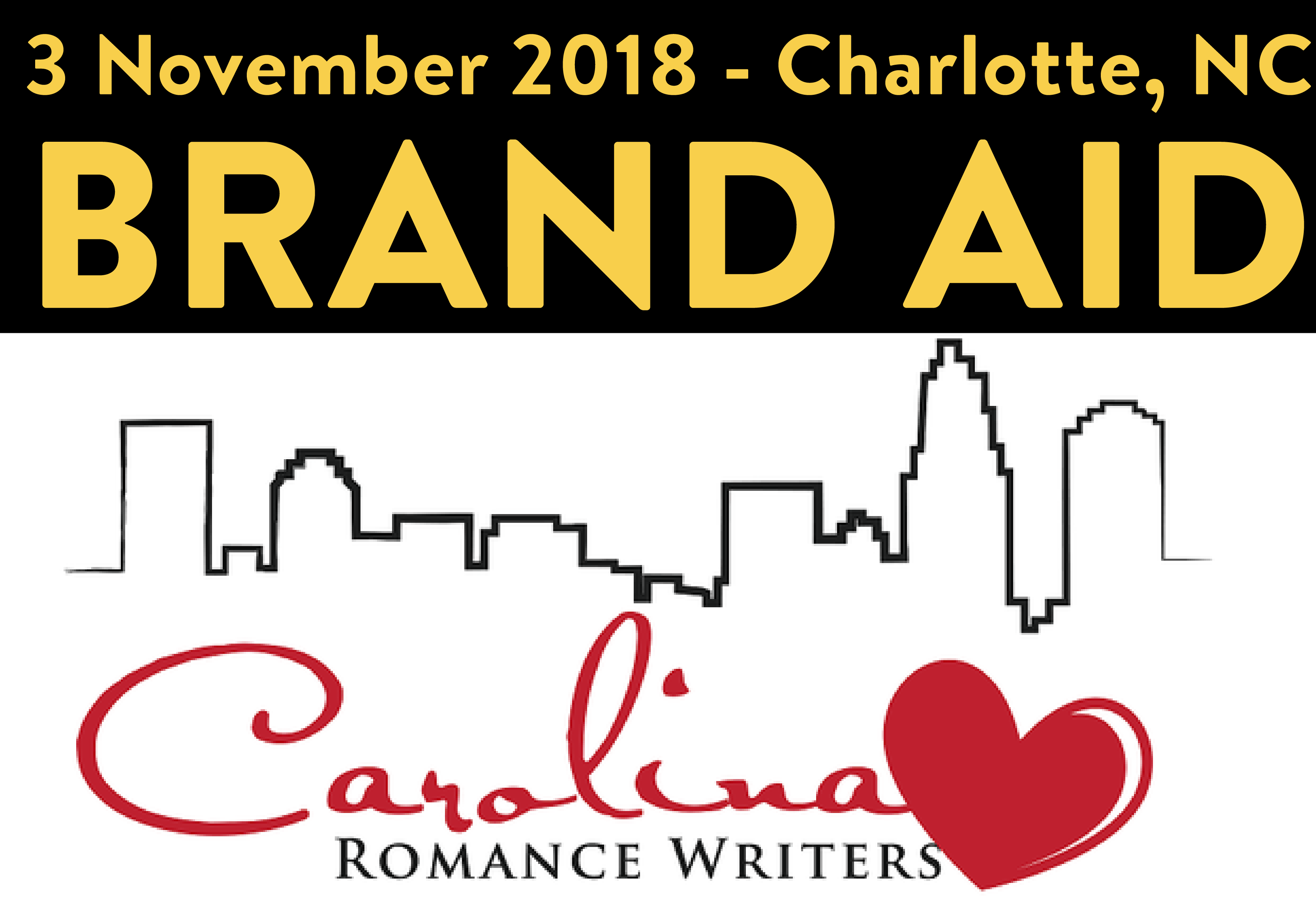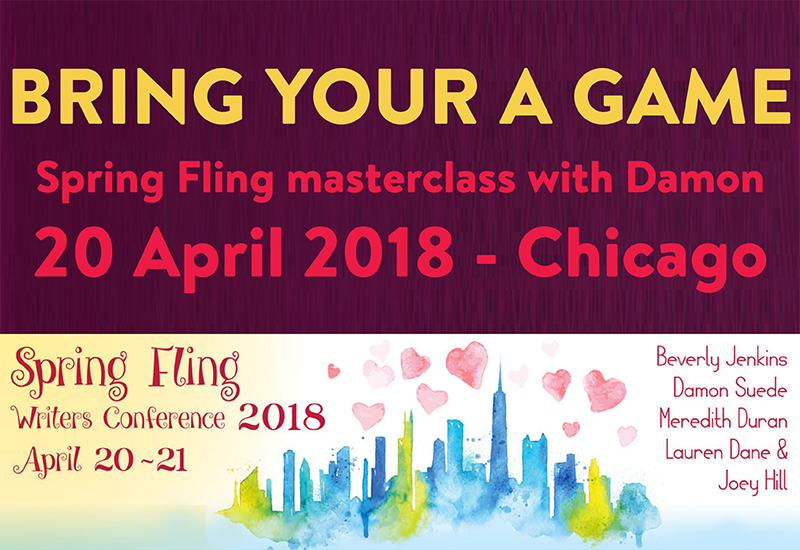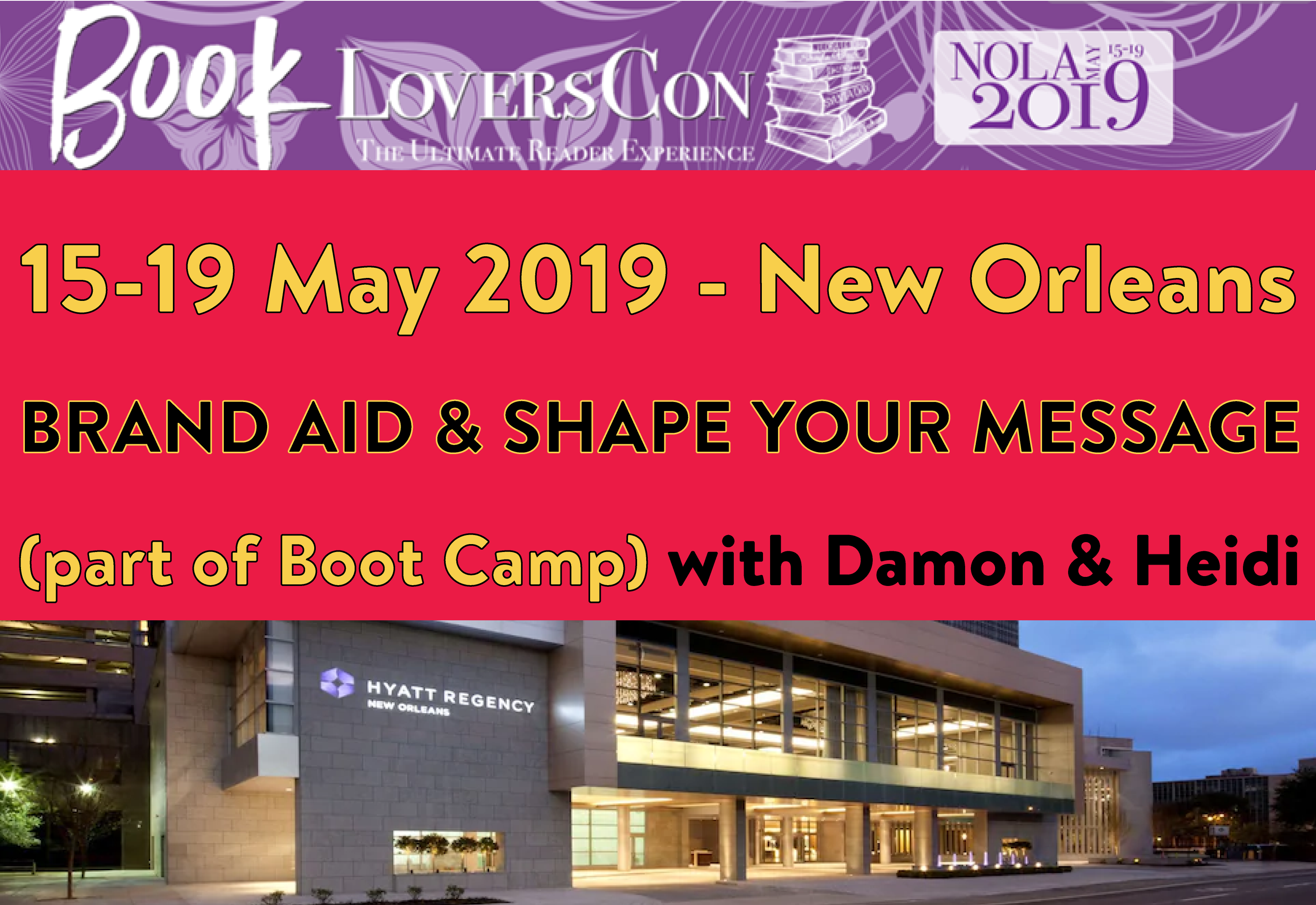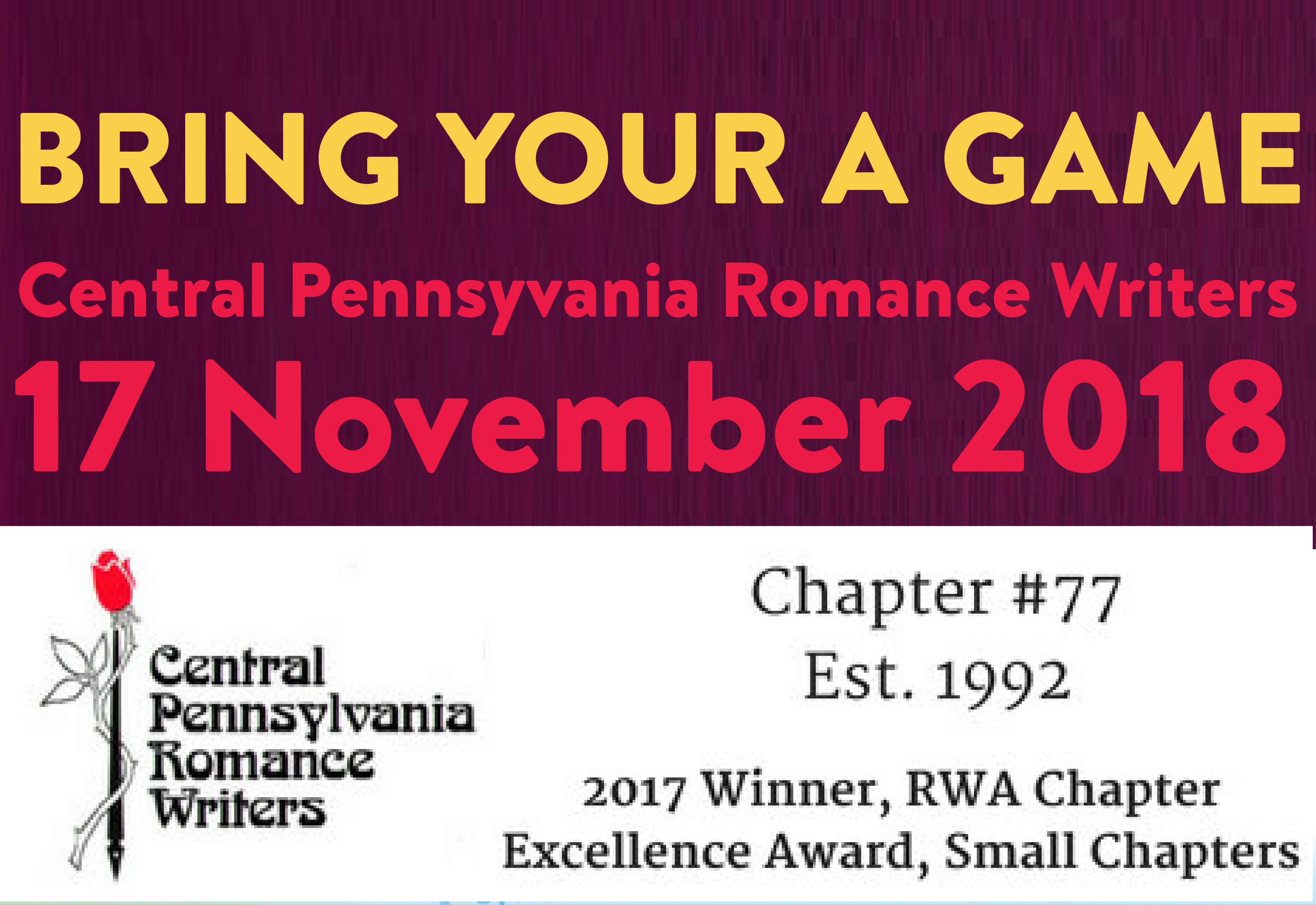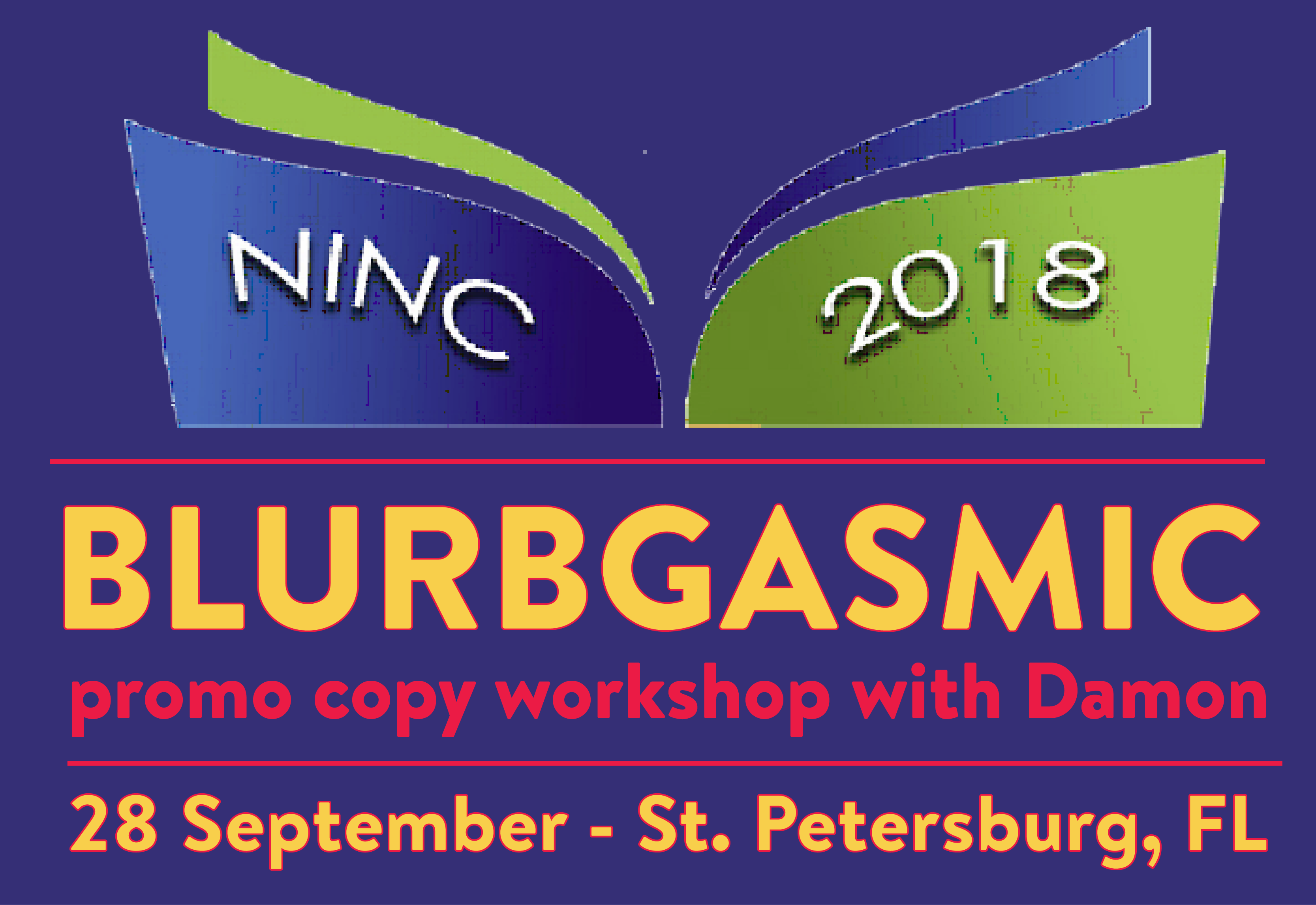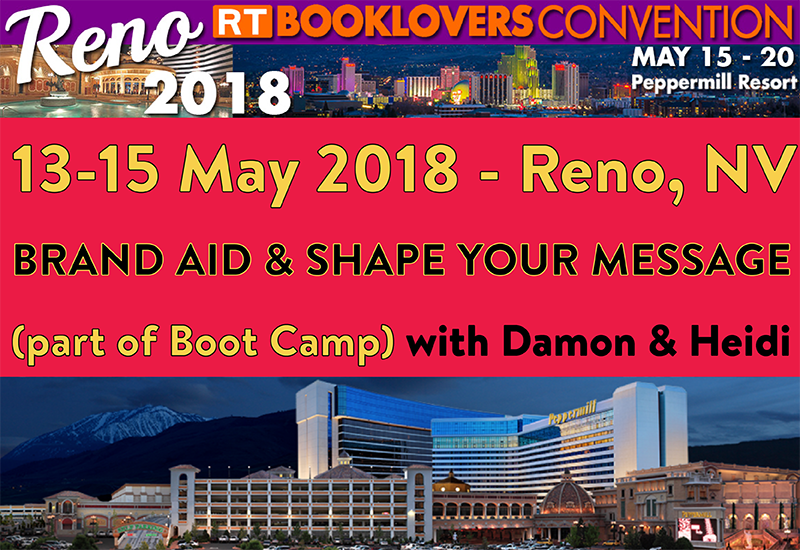Yep. Except the story is yours and the outcome is real. Most books on promoting genre fiction treat authors, careers, and even books as interchangeable widgets. That's simplistic, reductive, and inaccurate. At the same time, we knew that trying to cover every possible question and topic would generate an overwhelming pile of advice and anecdotes. Instead we created a nonfiction promo adventure that lets you choose your own way.
Your A Game features over 1400 separate hyperlinks through the book. intended to steer each reader where they'll get the most benefit for their current concerns. We've included:
- Play Style paths: for the four ways people approach challenges (Performer, Achiever, Socializer, Explorer)
- Experience paths: based on the range of professional experience (Novice, Intermediate, Expert, Cynic)
- Adventure paths: routes intended to elicit curiosity and prompt professional experimentation.
- Topical paths: narrow focus on topics of immediate interest to speciifc destinations.
We know it's impossible to answer every question, but we hope that this book at least points most genre authors in productive, entertaining directions. Structuring this material as chooseable adventure was us walking the walk: promo is a game where strategy and skill pays off with real prizes. We believe careers should be fun, and in treating promo like a game, we felt the book should be appropriately interactive and gamified in kind.
Originally we intended this to be a breezy, 150 page bit of cheerleading and helpful pointers. (Somewhere in California, our editor is laughing.) Our material quickly made it clear we'd be lucky to escape under 500 pages. We learned the reason so many books about fiction marketing end up either too general to be helpful or too specific to be broadly useful: it's impossible to answer the open-ended question, "How do I market my fiction?" in a manner non-specific enough to cover even half the authors in a genre without the reply coming in a volume that could double as a doorstop.
We considered breaking it into four books from the four sections and selling them individually. The problem was we knew the topic couldn't be addressed properly without all the information included. We also knew we had a meaty beast on our hands and people would digest it differently depending on who and where they were in their career. For some, consuming the book as a complete volume will be a delicious, carb-loaded treat...for others, especially the first time through, an endless nightmare. Instead our book IS a game... shaped by your personal style, strategy, and measure of success. Both of us come from a background in education, and we know the importance of meeting people where they are in their knowledge base and allowing them to move in the way and at the speed which will best allow them to grasp the concept they're wrestling with.
As we both come from a background in education, we couldn't stand to ignore authors of of any type, but also didn't want to bury our readers in info they'd personally find nonessential. The compromise was to lay out paths to help winnow the overwhelming material and strategic underpinnings into navigable adventures, something modern ebook formatting can fulfill. No rifling through pages, no dog-earing to remember a vital nugget, only the touch of a screen to keep the A game going.
For maximum ease in playability, we're offering Your A Game in ebook only for its initial release. It will be available in all common ebook formats: mobi, epub, PDF.
As soon as we're able to deliver a quality, playable print edition at an affordable price, we'll offer a print edition as well. Be sure to sign up for our newsletter to be notified as soon as the paperback edition is available.
Promoting your work is not a one-size-fits-all proprosition. You may have had limited success with one type of promo, but that doesn't mean that promo is impossible for you. Rather, you need to figure out what kinds of promo you'll enjoy. Authors are not bugs. We all have skills and flaws that distinguish us from the rest of our colleagues. If you've never had fun promoting your work, we encourage you to keep an open mind.
We wrote Your A Game as a chooseable adventure for exactly this reason: no two careers are identical. We've included a range of path options for different goals and experience levels so that you can find the answers you need. Promo may not always be enjoyable, but it shouldn't be a horrifying chore. Finding more readers for your work should sound like a good thing. Every genre author promotes their work although the effectiveness of those efforts varies wildly.
We will absolutely help you break down what strengths you have and what you'll need to acquire to reach the target you have in mind. We'll also help you evaluate whether or not you're aiming in the right direction in the first place and show you how to unpack expectations and lead you out of the temptations of shortcuts. Which is to say, you might read this book and figure out how to make your work a bestseller. You might also read it and discover your measure of success can't be constrained by ladders or lists.
You should, absolutely, read through the novice path and give yourself an overview of the marketplace you'll eventually launch your book into. You might also read through the book leisurely, by play style or from end to end, as you're drafting, especially in those moments when you aren't sure who in the world will read your book and how you will ever convince anyone to buy it. (Trust us. That moment is ahead of you.)
First of all, congrats! As you well know, that's no mean accomplishment. We're pretty sure you're going to see a lot of your techniques for success laid out in Your A Game, because there's no secret sauce here, just common wisdom and tried-and-true truths collated into one volume. However, since you're here perusing our site, we're assuming you're interested in upping your A game. We posit to you, expert author, that not only do we have a path you can follow to polish your projects and produce better promo plans, but should you peruse the volume in its entirety, you'll find this collection of tools and truths something you'll refer back to as a resource, freeing up some space in your head for another story your readers will love.
We saw you coming, cynical author, and we made an experience path just for you. We'll help you identify where you lost your mojo and how you can get it back or forge yourself a new purpose. While we can't promise your muse will be dancing the can-can in the Moulin Rogue by the time we're through with you, we are confident we can get her to put down that ashtray and either head to sunnier climes or at least grab an umbrella and work the scene into a stylish noir.
While Your A Game speaks directly to the concerns of genre fictioneers, all of its principles and professional advice apply to anyone working in publishing entertainment. Your mileage may vary, obviously. Many guides to nonfiction and general business promo exist, so we wrote our book for genre authors, but easily 80% of the information applies to anyone in the business of writing books, or producing and selling any type of content in the entertainment industry.
We considered it seriously but realized it would never work because of the complex interplay between all the components of an author's promotional strategy.
Promo involves several interconnected disciplines and skills which influence each other constantly. You cannot market effectively without a strong brand. You cannot launch a breakout project without a sense of your presence and the market you serve. Author brands are built on projects.Your A Game needed to cover all those topics as a professional ecosystem, because they ARE a professional ecosystem.
The setup and logistics really depends on the context. We've taught workshops in conference centers for hundreds and private promo coaching for publishers looking to boost their authors. The only essential element is time and attention. Generally we do use Powerpoint, because visuals can be so helpful with abstractions, but we can also throw down low-tech without trouble.
99% of the time we offer a meaty handout to spare note-taking and so that students can mull the content and kick ideas around afterward.
Our main goal for any class is that attendees leave with concrete options and a better sense of the tasks ahead.
We don't! If anything the play styles were our solution to the problem of different authors needing different kinds of information. No two people share identical career paths or notions of success. Genre fiction promo requires creativity and flexibility and so we wanted our book to do likewise. We included the play styles to help folks focus on what mattered most to them at this moment. In six months, your goals may have evolved, but focusing on what's important is never a bad idea.
We're glad to hear it! None of us are clones or insects. Your complexity is what makes your writing special, and people rarely fit into tidy categories. The purpose of the play styles is not to dictate your behavior, but to help you identify the goals that excite you at the moment. Think of your play style as a lens, not a box; it's only there to help you look at your career efforts.
Not unless you feel compelled to work in lockstep with them. Embrace the unique spark that makes your writing stand out and let them do the same. Most people tend to look for complimentary relationships...people whose play styles supplement their weaknesses and vice versa. That's true of any group you encounter (and every ensemble story too, natch.) The key to a great A-gang is finding a balance of goals and strengths so you can all rise together.
Go for it! Again, your play style simply identifies what you seek out in your career. Deciding you want something different means you've evolved. On the flip side, if you find you're jumping around, then the play styles aren't helping you focus, so their benefit will be minimal. As always, we want you to use what works for your A-game.
No sweat! Just bear in mind this beast makes for some tough chewing and might feel dense once you've ingested a healthy portion in one sitting. Don't hesitate to take a break and let things break down a bit before diving in for another round.
Anyone who tells you they know the one true way for you to pursue your career is likely a shyster or a con artist. Each of us has operated with all of these play styles at different points in our lives, varying by year and sometimes minute to minute. The truth is, the best play style for you is the one that will let you go after the rewards you value in a way you enjoy.
These player descriptions derive from the work of game theorist Richard Bartle and partly from our combined knowledge of myriad archetypal structures. The core idea of the book was that no two authors, books, or careers were the same. How could a book give the same advice without some kind of meaningful context?
In practice, the A-game play styles and archetypes are our best effort to illustrate how fiction authors approach learning about marketing and how they practice promotion in real time. Thefour play styles (performer, achiever, socializer, explorer) are used to navigate the text and get readers thinking about promo through their experience, not some marketing maven on a mountaintop.
The eight archetypes also drew from Bartle's study of what people enjoy and pursue in multiplayer games. Several years after his original play style paper, he expanded on original four player types by considering the way that players approach challenges and opportunities: impulsively or intentionally. We've used his expanded pantheon as a culturally neutral model that speaks directly to the ways people intercat and have fun.
Our archetypes simply offer suggestions for ways authors might present themselves to the public as they sell their work and point out possible pitfalls tailored to those eight specific ways of thinking. Not everyone will find the play styles and the archetypes fit them exactly, but we hope asking people to think about promotion from their particular viewpoint shakes up the pervading notion of finding and following "the way" and instead seeking each our own paths.
We both have a lifelong love of studying archetypal systems, but we owe the greatest influence on our A game play styles and archetypes to Richard Bartle. You can learn more about his game theory player types on the web and in:
- Designing Virtual Worlds by Richard A. Bartle
- Richard Bartle, "Hearts, Clubs, Diamonds, Spades: Players Who Suit MUDs"
- Richard Bartle, “A Self of Sense”
- Bart Stewart, “Personality and Play Styles: A Unified Model”
Both are abstract ways of categorizing patterns of behavior for the purposes of analysis and strategy.
For our purposes, playstyle is determined by your personal goal as a genre professional, and archetype is determined by what you enjoy about being an author in a public setting.
- A play style is your game piece on the board, your lens through which you view and comprehend marketing and promotion.
- An archetype is your game face, the public role you take on while actively promoting your work and your brand, the persona you adopt. It might be an extension of your play style, but it might be something entirely different.
As many as you need. When you’re first starting out, you might have only two or three, but as you progress through your career, you'll discover the people you can trust in any circumstance to support your A game. Over time, your network is likely to become quite vast, but your A-gang will be the close-knit, die-hard support network that keep you sane and safe. Rather than asking if you have enough people, we suggest you ask if you’re A-gang feels complete. If not, use the questions above to identify who you’re missing and seek them out.
No worries. Remember, play style represents your current approach to promotion and marketing as a task, and archetype is the role you take on when you enter the arena. Play style is internal, whereas archetype describes your external impact, how others see you.
No sweat! Just bear in mind this beast makes for some tough chewing and might feel dense once you've ingested a healthy portion in one sitting. Don't hesitate to take a break and let things break down a bit before diving in for another round.
There are no hard and fast rules about how your career evolves, but generally coherence and consistency have way more impact than brand-new-cherry-flavor trendhopping.
- If you’re asking if you can be someone you’re not (try to be a Gambler even though you know it’s not who you are), then no.
- If you’re asking, though, if you might naturally drift from one archetype to another as you and your career evolve, then the answer is absolutely.
Anyone who believes their career in genre fiction shoudl be fun and rewarding. We specifically created paths through the material for different types of author... we wanted the book to act as a resource that evolves alongside a career.
While any author at any stage can find wisdom and direction in Your A Game, what is required of all readers is a willingness to believe there is a unique promotional path for them and not one solitary gilded road to Oz.

